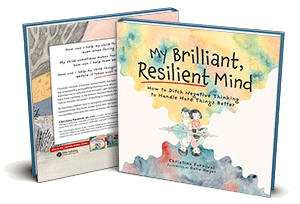We all experience it. Some more often than others. And we all have different ways of handling it. Many shy away; some face it head on. What is “it”? Conflict — specifically, with our partners.
The word “conflict’ comes from the Latin word “confligere” meaning to strike together. That sounds unpleasant, though quick. Today it has taken on much stronger meaning and connotation: a “serious argument”. That sounds pretty heavy! No wonder many people will tell you “I hate conflict” or “I avoid it”. But does avoiding conflict mean your relationship will be successful? Or even a happy one? And conversely, does lots of conflict mean your relationship is doomed to fail?
What if I told you that the healthy management of conflict can bring you and your partner closer, actually fortifying your relationship? Well I speak the truth, my friends. Arguments and differences of opinion with your spouse are natural and to be expected. Really, that makes sense if you think about it: You are two separate people with different upbringings, experiences, and ways of thinking. It would be unnatural — and downright creepy — if you got along about everything. By accepting that conflict is a part of every relationship, including the long-lasting and happy ones, we are able to lift the weight of pressure that we put on ourselves to have the “perfect” marriage. What matters more than whether or not we have conflict (which, again, we all do), is how we handle it.
10 Steps To Appropriately, Collaboratively, and Effectively Manage Conflict
Determine what’s worth bringing up in the first place. Is the issue something that bothers you in the moment, but you know it’s not really a big deal and your concern will pass? Or is it something that you decide to swallow, knowing full well if you are honest with yourself that it will eat at you until you explode? If it’s the latter, it’s worth bringing up before you are stewing on it for days or weeks or months — bring it up now
When you share what’s bothering you, be tactfully direct. Using passive-aggressive tactics can seem easier in the short-term, and the dig to your spouse may sometimes feel good to you, especially if you’re seeing red, but they are not healthy or conducive to a happy relationship. If your partner has not been doing their share of the housework, instead of showing passive-aggression by letting the dishes pile up or by making a cutting remark like “there’s not a dish fairy, you know!”, you could say something like “Hey honey? I’ve been washing the dishes a lot lately. I’m worn out from it being only my responsibility, and I’d like you to do it tonight please.” Doesn’t that seem nicer and clearer? Ultimately, a tactfully direct approach is much more effective in helping you achieve your goal, in this case, your partner doing the dishes.
Use “I” Statements. These are statements, like the one above, where you own up to your feelings, wants and needs, without blaming or pointing fingers at the other person. These are great because they can set the tone to diffuse tense arguments. The not-recommended approach, a “you” statement, might look like “Ugh! You never listen to me! You just care about yourself!” Those words are like putting up your literary dukes. Your partner has no choice but to put theirs up too, leading to a more hostile interaction. So, a better way to phrase this would be with an “I” statement: “I am really upset because I am not feeling heard and I feel like you do not have focus on me right now.” Your partner is better able to receive what you say, and may even show some empathy.
Use objectivity without judgment. This is a toughy. It’s human nature to categorize and make judgments, and its evolutionarily beneficial as it can alert us to danger, but it’s not good for our relationships. Let’s imagine that your partner came home from the store without the one item that you requested, yet again! Objectively, what happened was that he or she did not bring home what you asked for. Your judgment of the situation may then come unfairly free-flowing: “you’re always forgetting things”, “you did it on purpose”, or “you never pay attention to what I need”. If you say any of those things to your spouse, we can all guess that it probably won’t go over too well. So instead, say what objectively happened, and then use one of those handy “I” statements from the step above to explain the effect of your partner’s action on you. “You didn’t get X at the store for me like I asked. I’m annoyed because this isn’t the first time that this has happened, and I feel let down because I needed your help with that today.” See how there is no judgment in your rephrased statement that your partner would feel attacked by? It takes time and practice to think and speak like this naturally, but with practice you will get better and better at it, and you’ll see positive results.
Take turns speaking, by actually listening to your spouse without cutting in. We all are guilty of listening to someone speak, using our mental energy to devise our responses without actually hearing what they are saying. As soon as they finish talking, we cut in with our prepared response, showing no understanding of what the other said. As you can guess, this is not super helpful to resolving problems. So, what you should do while listening is (drumroll): actually listen. Hear what they have to say. Absorb it. You can even pause after they finish speaking if you need the extra time to process. After understanding, then is a good time to begin formulating a response, or even better, you can repeat to them what you just heard before responding. “It sounds like you think I am being selfish because I pick the Netflix show most evenings. I didn’t realize that bothered you. You can have a turn tonight!”
Do not use hurtful words. I can’t stress this one enough. Even if you think your partner is being a pain in the behind, will saying that to them do anything positive to the conversation or to decrease the size of the pain they are being? Heck no! And, honestly, we know that deep down. We need to put our relationship above our anger/hurt, and leave those mean put-downs behind. No more name-calling, and if possible, try not to use curse words in general, as they keep our blood racing and do not contribute to collaborative problem resolution. You can get your point across without them.
Own up to and apologize for anything you should. This can be hard to do, but it can go a long way in making relationship repairs. If you have followed my steps, you have used objectivity to gauge situations and you’ve expressed your feelings with “I” statements. You’ve done all that to help your partner see your side of things by speaking in a way that elicits empathy and inhibits hostility. And you’ve listened — really listened — to hear their side of things. Now it’s time to be honest about the role you’ve played in the drama. This can be less uncomfortable than expected if you do so with objectivity as well. Instead of having to say, “I’m sorry for being a jerk”, or saying the dreaded false apology, “IF I did that, I’m sorry you got all emotional about it”, you can say “I’m sorry that I kept poking fun at you in front of our friends” or “I feel bad that I didn’t wash the car like I said I would”. Objectivity takes the sting out, both when we are expressing dislike of our partner’s actions, and when we are recognizing our own missteps.
If you need to, take a break. If you have tried the steps above and things are still heated or gridlocked, call a time-out. You could say, “We aren’t getting anywhere right now. Let’s talk about this later.” This can be helpful because as you both move on to other things, your brain can move from the fight-or-flight state that arguments often initiate into a more relaxed state of mind. From a calmer place, you and your spouse may be better able to address the issue. This is also the time to recognize if the issue at hand is one that deeper, or even, unresolvable. Some problems should be laid to rest without resolution, and this is your chance to decide if this is one.
Go to sleep angry. Wait, what? Yes, you read that right. I repeat: Go to sleep angry. When you are tired, a fight is futile. You are not firing on all cylinders, and it is easy for arguments to ramp up instead of winding down. In the light of the day everything seems clearer and you just might be able to talk about the problem more easily. On a similar note, argue sober. This is one of those things that seems obvious when you read it, but many of us finish the day with a beer or a wine, and then finally have the time to talk with our partner once the kids are asleep. Sleep deprivation and alcohol (and any other mind altering substance) will modify how you are thinking, what you are saying, and how big your reaction is. The ideal state to problem-solve with your partner is one in which you are well-rested, well-fed, free from all substances, and calm.
Build up your relationship’s resilience in moments that are free from conflict. This is a big one. Fill your relationship feel-good bank regularly, and you’ll notice that this does two things: it decreases the frequency of conflict in the first place, and when conflict does arise, it allows you and your partner to not be as affected, leading to quicker and calmer resolution. Water off a duck’s back, ya know? You strengthen your relationship by nurturing the friendship. Do this by noticing and celebrating the things your spouse is doing that make you happy. Compliment them often (think: daily, or multiple times a day). Engage in positive physical contact like sweet kisses and hugs. Thank your partner for big things, and even little things. If you do all of this, you’ll experience a positive feedback loop and your relationship will benefit.
Give these 10 steps a shot. Try them on for size and see how they fit. And let me know what you think in the comments below! The “con” in conflict means together, and as such it is my hope that you will aim for these conversations with your spouse to come from a place of alignment where you are on the same team. Often our ways of achieving the same goal are different from each other, and that’s okay.
Your relationship is more important than your conflict.
If you are concerned that your relationship is unhealthy or that you may be experiencing “gaslighting” or any other type of abuse, please reach out to a therapist near you for individual counseling. Conflict should never involve fear, violence, aggression, intimidation, isolation or manipulation.
Love and hugs,
Christina


